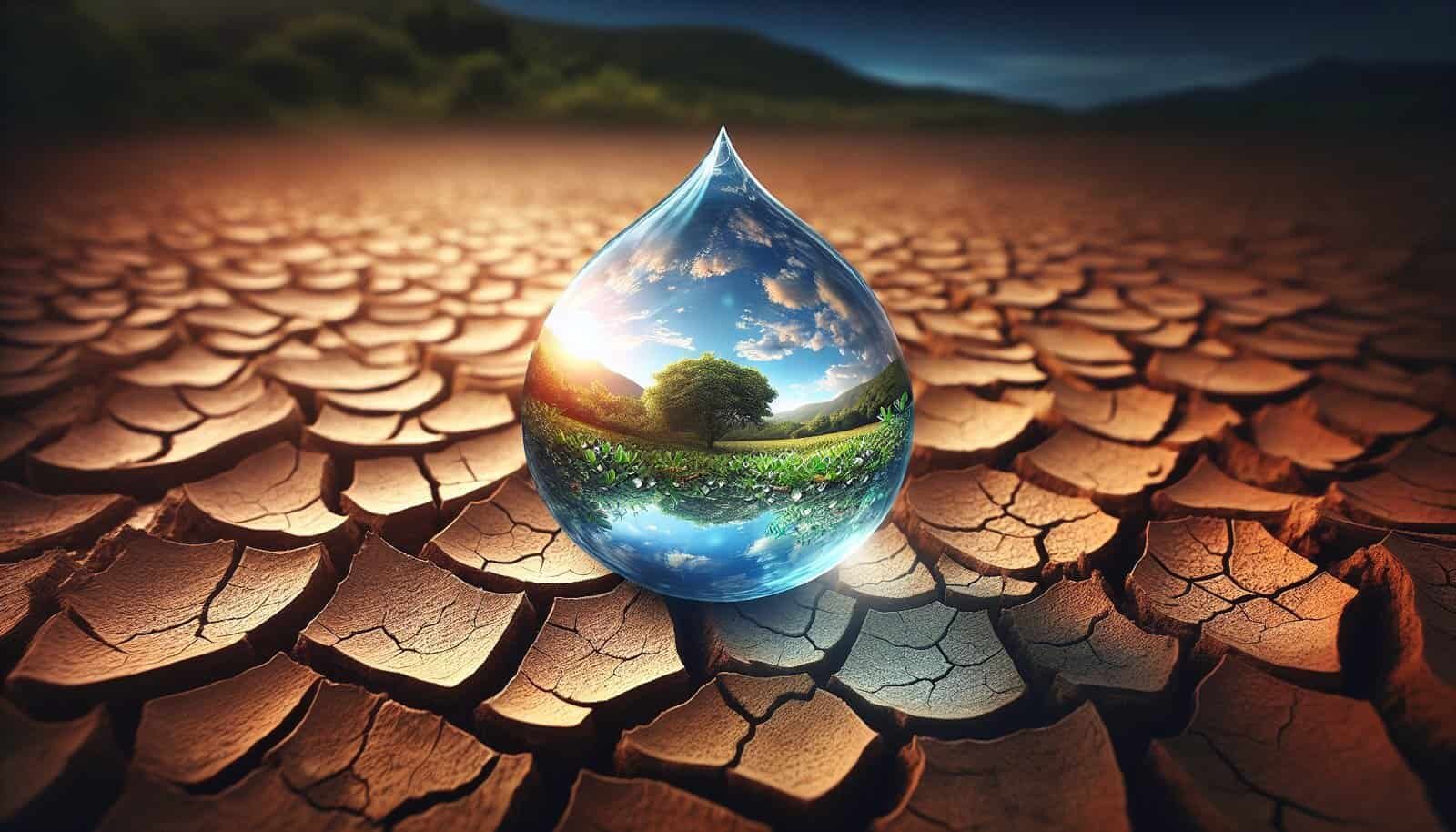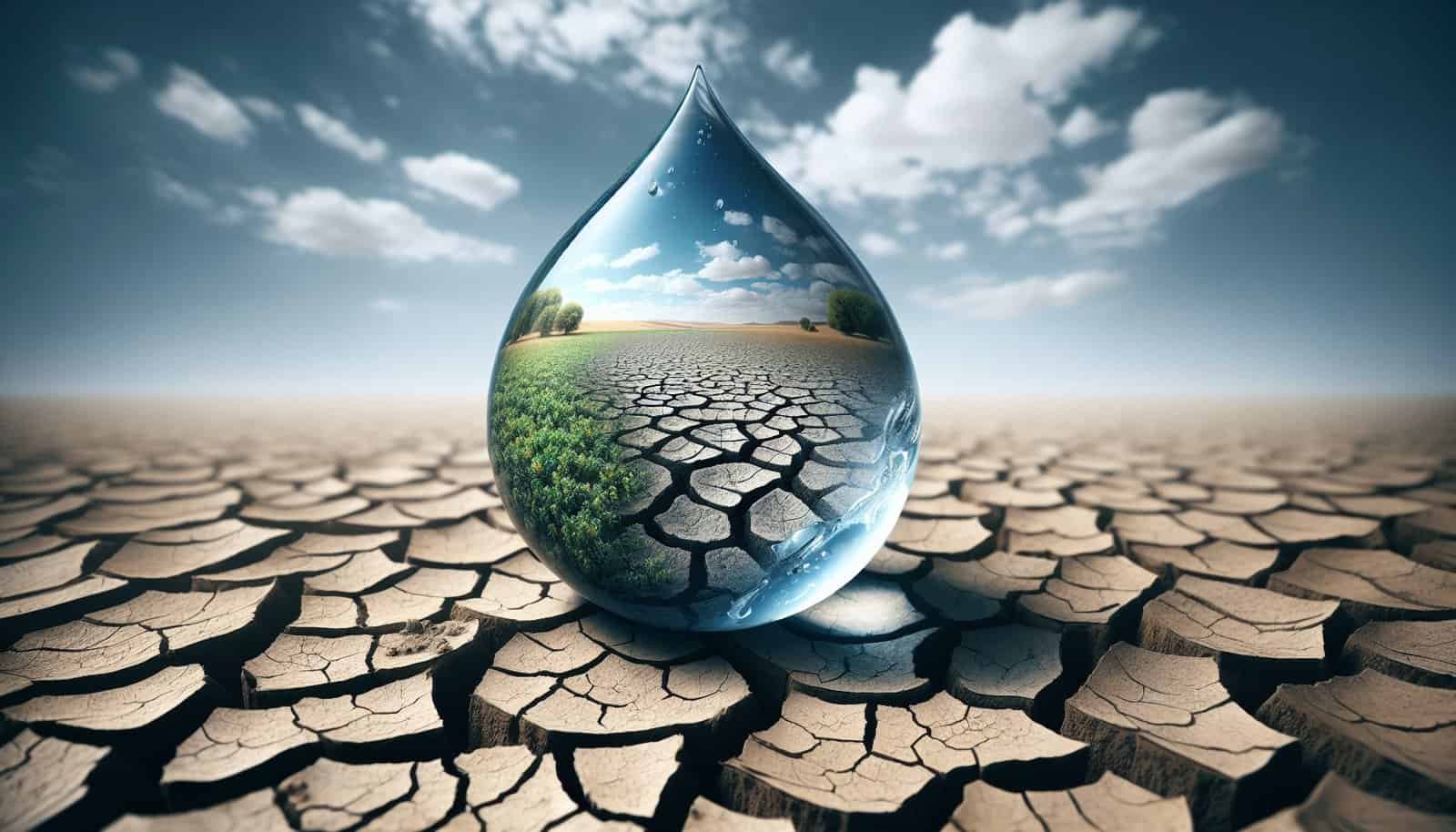Have you ever wondered how climate change is affecting our planet’s groundwater resources? The answer to this question is critical as groundwater serves as a vital resource for drinking, agriculture, and industry across the globe. Understanding the impact of climate change on groundwater is essential for devising sustainable management strategies. This article will guide you through various resources that detail these impacts meticulously, providing insights and data necessary for an informed understanding.

Understanding Groundwater
Groundwater is water that resides beneath the Earth’s surface, filling the porous spaces in soil, sediment, and rocks. It acts as a critical reservoir that supports the water cycle, sustains ecosystems, and provides a significant portion of the world’s drinking water. Unlike surface water sources like rivers and lakes, groundwater is less visible and often overlooked. Yet, it plays an indispensable role in the overall hydrological balance, making it essential to consider its vulnerability to changing climate conditions.
The Importance of Groundwater
Your home might rely on groundwater without you realizing it. Approximately 2.5 billion people worldwide depend on groundwater for their daily water needs. It provides around 43% of all irrigation water, supporting the global food supply. Moreover, groundwater sustains streams, wetlands, and ecosystems, ensuring biodiversity and environmental health. The well-being of communities and economies fundamentally depends on the stability of groundwater resources.
Climate Change and Its Impacts
Climate change refers to long-term changes in temperature, precipitation patterns, and extreme weather events due to both natural and human-induced factors. These changes significantly impact the Earth’s hydrological systems, including groundwater. The effects can be both direct, such as shifts in precipitation, and indirect, involving increased demand and usage changes due to droughts.
Direct Impacts on Groundwater
Changes in Precipitation Patterns: Shifts in rainfall patterns can alter groundwater recharge rates, impacting availability. In areas where precipitation increases, recharge may also increase, potentially benefiting groundwater levels. However, in regions experiencing decreased rainfall, recharge rates can drop, leading to dwindling groundwater stores.
Sea Level Rise: As sea levels rise, coastal aquifers face the risk of saltwater intrusion, which can contaminate freshwater resources and make them unsuitable for consumption or agriculture.
Temperature Increases: Warmer temperatures can lead to increased evaporation rates, reducing the amount of water that percolates down to recharge aquifers.
Indirect Impacts on Groundwater
Altered Water Demand: Rising temperatures and changing agriculture patterns can increase water consumption, placing added pressure on groundwater reserves.
Changes in Land Use: As communities adapt to climate changes, land use changes, such as urban expansion or agricultural shifts, can impact groundwater quality and availability.
Key Resources Explaining These Impacts
To grasp the full scope of climate change’s impact on groundwater, numerous resources are available. These include scientific reports, research papers, online databases, and governmental publications, each providing vital information and insights.
Scientific Reports
Reports from global organizations like the Intergovernmental Panel on Climate Change (IPCC) and United Nations are pivotal. They compile extensive research and data, offering comprehensive views on climate change’s effects across various sectors, including groundwater.
IPCC Reports: These provide detailed assessments of scientific knowledge on climate change, its implications, and potential adaptation strategies. Their chapters often include sections on water resources, which discuss groundwater in the context of climate impacts.
United Nations Environment Programme (UNEP): UNEP operates initiatives focusing on climate adaptation and water management, with resources often detailing groundwater issues.
Research Papers and Journals
Academic journals are a treasure trove of detailed studies and analyses that delve deeper into specific aspects of groundwater and climate change. Journals such as “Hydrogeology Journal” and “Water Resources Research” regularly publish studies exploring these issues.
Online Databases
World Bank’s eAtlas of Global Development: This tool provides an interactive platform to explore various global development indicators, including those related to water availability and environmental factors.
US Geological Survey (USGS) Water Resources: USGS offers data on groundwater levels, quality, and usage, with extensive research into climate change impacts.
European Environment Agency (EEA) Water Data Centre: EEA provides datasets focusing on water resources and trends in Europe, including groundwater under climate change influences.
Groundwater Common Good Initiative: This initiative focuses on sustainable groundwater management and provides resources detailing climate impacts.
Government and Policy Documents
Many governments release reports and policies focusing on climate impacts on natural resources, including groundwater. For example, the US Environmental Protection Agency (EPA) and the UK’s Department for Environment, Food & Rural Affairs offer publications detailing strategies to safeguard water resources.
Environmental Non-Governmental Organizations (NGOs)
NGOs like the World Wildlife Fund (WWF) and Greenpeace contribute to raising awareness and pushing for policy changes. They often release reports and briefing documents highlighting groundwater’s significance and vulnerability in the climate crisis.
Understanding Resource Utilization
Knowing which resources to utilize is only part of the journey. Effectively using these resources requires a structured approach to gather, interpret, and apply the information.
Steps for Resource Utilization
Identify Your Focus: Start by pinpointing what aspect of groundwater and climate change you are interested in—be it regional impacts, mitigation strategies, or policy implications.
Select Reliable Sources: Prioritize well-regarded institutions and peer-reviewed publications to ensure you are accessing credible and accurate information.
Analyze Data and Reports: Break down the data you collect. Look for trends, correlations, and anomalies that can provide you with a deeper understanding of the impacts.
Apply Knowledge: Use the insights gained to inform decisions, whether for personal, policy-making, or academic purposes.

Challenges in Assessing Groundwater Impacts
Assessing the full impact of climate change on groundwater is fraught with challenges. The hidden nature of groundwater systems and the complexity of climate interactions make comprehensive assessment difficult.
Key Challenges
Data Limitations: Groundwater data can be sparse or inconsistent, particularly in developing regions, making comprehensive analysis challenging.
Complex Interactions: The interactions between climate variables and groundwater systems are complex and often site-specific, requiring localized studies and modeling.
Modeling Challenges: Reliable predictive models are required to forecast groundwater changes under different climate scenarios, and developing these models involves numerous uncertainties and assumptions.
Collaborative Efforts for Action
Addressing the impact of climate change on groundwater requires collaborative efforts across various sectors, from scientific research to policymaking and community action.
Multi-Sectoral Collaboration
Scientific Community: Ensure that researchers across disciplines work together to enhance understanding and develop predictive models.
Policy Makers: Develop and enforce policies that prioritize sustainable water management and climate adaptation strategies.
Industries and Businesses: Encourage industries to adopt water-efficient practices and invest in sustainable technologies.
Local Communities: Engage local communities in water conservation efforts and educate them about groundwater’s significance and vulnerability.
International Cooperation: Since climate change and water resources span national borders, international collaboration is crucial. Cross-border agreements and global forums can facilitate knowledge sharing and coordinated action.

Moving Forward
Understanding and mitigating the impacts of climate change on groundwater is a formidable yet essential task. Continued research, coupled with robust policy frameworks and community engagement, will be crucial as you work towards securing this invaluable resource for future generations. By leveraging the resources and knowledge available, you can play a part in crafting solutions that protect and sustain groundwater systems amidst a changing climate landscape.
In conclusion, while climate change presents growing challenges to groundwater resources, the comprehensive resources available provide a foundation of knowledge from which you can build a resilient and informed approach. Whether you are a student, policymaker, researcher, or concerned citizen, the insights gained can guide you towards effective action and advocacy in the face of global environmental change.
